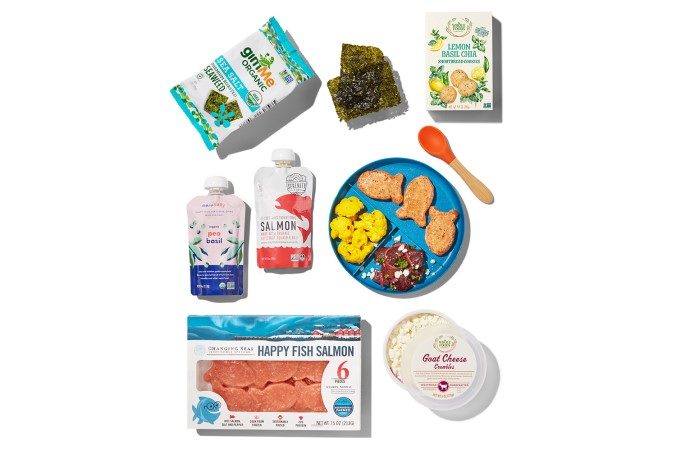- Regenerative Agriculture. The term describes farming and grazing practices that restore degraded soil, improve biodiversity, and increase carbon capture to create long-lasting environmental benefits. For more on what this is and how companies are working to mainstream it, read WholeFoods’ September feature on RegenAg here.
- Alternative Flours. The experts at Whole Foods suggest that ingredients like teff flour, banana flour, cauliflower flour, tigernut flour, and a variety of other seed flours, fruit flours, and vegetable flours will find their way into customers’ cabinets as they look for ways to up protein, fiber, and nutrition. These flours also boost the adventure component of baking, helping bakers “scratch a creative itch in the kitchen.”
- West African Flavors. There are 16 nations within West Africa, the press release notes, each with their own specialties. They do share some similarities, however, including the trio of tomatoes, onions, and chili peppers, and popular additions include peanuts, ginger, and lemongrass. Some superfoods come from West Africa, too—moringa and tamarind, and grains including sorghum, fonio, teff, and millet.
- Fresh Snacking Options. And not just fresh—refrigerated. Hard-boiled eggs with savory toppings, pickled vegetables, drinkable soups, and nutrition bars with fresh fruits and vegetables are all making their way into customers’ carts. These snacks tend to have cleaner labels, too—a big plus.
- Plant-Based—Beyond Soy. Brands are looking into grain blends and mung beans to attain the creamy textures of yogurts and other dairy products, without soy. Supplements are swapping soy for mung bean, hempseed, pumpkin, avocado, watermelon seed, and golden chlorella, bringing plant-based amino acids to protein powders without sacrificing texture. Besides avoiding allergens, this helps bring variety to a plant-based diet.
- Butters and Spreads. They're getting fancier. Tahini? Think watermelon seed butter. Chickpea butters are coming, and no, that’s not hummus. Pili butters, pumpkin butter, and a variety of other vegan, keto-friendly butters, with many brands looking to either eliminate palm oil or to show off a Responsibly Sourced Palm Oil certification.
- Better-For-You Kids’ Foods. Brands are expanding the menu with healthier ingredients that appeal to moms—think organic chicken nuggets—and sophisticated ingredients that, they're finding, appeal to kids: non-breaded salmon fish sticks, fermented foods, colorful pastas made from alternative flours. As one example, Whole Foods lists “gimMe Organic Premium Roasted Seaweed”—not a traditional kid’s food, but one for the latest generation.
- New Sugars. Stevia, honey, maple syrup—these are tried-and-true-and-loved, but they're not the only sugars out there. Whole Foods suggests syrupy reductions from fruit sources like monk fruit, pomegranates, coconut, and dates. Sorghum and sweet potato can also make make sweet syrups comparable in flavor to molasses or honey.
- Meat-Plant Blends. Brands like Applegate are selling beef burgers with 30% plant-based ingredients; the Lika Plus Burger is made with 25% wheat, mushroom, barley yeast, and water. For at-home chefs, adding ingredients like mushrooms is a healthy, budget-friendly choice that appeals to meat-eaters and flexitarians alike.
- Zero-Proof Drinks. As WholeFoods has called out previously, customers are looking for non-alcoholic options that recreate classic cocktail flavors. They’re looking to avoid the negative effects of alcohol, without giving up the taste or variety.










